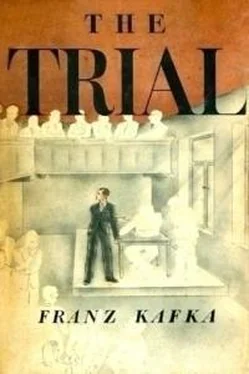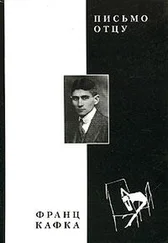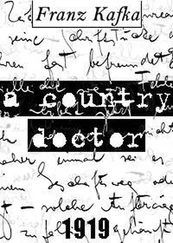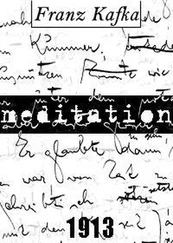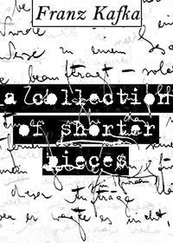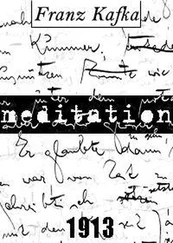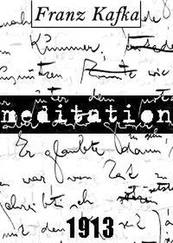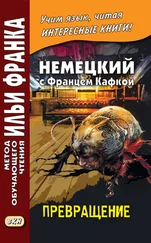Франц Кафка - The Trial
Здесь есть возможность читать онлайн «Франц Кафка - The Trial» — ознакомительный отрывок электронной книги совершенно бесплатно, а после прочтения отрывка купить полную версию. В некоторых случаях можно слушать аудио, скачать через торрент в формате fb2 и присутствует краткое содержание. Год выпуска: 2014, Издательство: epubBooks Classics, Жанр: Классическая проза, на английском языке. Описание произведения, (предисловие) а так же отзывы посетителей доступны на портале библиотеки ЛибКат.
- Название:The Trial
- Автор:
- Издательство:epubBooks Classics
- Жанр:
- Год:2014
- ISBN:нет данных
- Рейтинг книги:3 / 5. Голосов: 1
-
Избранное:Добавить в избранное
- Отзывы:
-
Ваша оценка:
- 60
- 1
- 2
- 3
- 4
- 5
The Trial: краткое содержание, описание и аннотация
Предлагаем к чтению аннотацию, описание, краткое содержание или предисловие (зависит от того, что написал сам автор книги «The Trial»). Если вы не нашли необходимую информацию о книге — напишите в комментариях, мы постараемся отыскать её.
The Trial — читать онлайн ознакомительный отрывок
Ниже представлен текст книги, разбитый по страницам. Система сохранения места последней прочитанной страницы, позволяет с удобством читать онлайн бесплатно книгу «The Trial», без необходимости каждый раз заново искать на чём Вы остановились. Поставьте закладку, и сможете в любой момент перейти на страницу, на которой закончили чтение.
Интервал:
Закладка:
Once he was properly dressed, K. had to pass by Willem as he went through the next room into the one beyond, the door of which was already wide open. K. knew very well that this room had recently been let to a typist called 'Miss Bürstner'. She was in the habit of going out to work very early and coming back home very late, and K. had never exchanged more than a few words of greeting with her. Now, her bedside table had been pulled into the middle of the room to be used as a desk for these proceedings, and the supervisor sat behind it. He had his legs crossed, and had thrown one arm over the backrest of the chair.
In one corner of the room there were three young people looking at the photographs belonging to Miss Bürstner that had been put into a piece of fabric on the wall. Hung up on the handle of the open window was a white blouse. At the window across the street, there was the old pair again, although now their number had increased, as behind them, and far taller than they were, stood a man with an open shirt that showed his chest and a reddish goatee beard which he squeezed and twisted with his fingers. "Josef K.?" asked the supervisor, perhaps merely to attract K.'s attention as he looked round the room. K. nodded. "I daresay you were quite surprised by all that's been taking place this morning," said the supervisor as, with both hands, he pushed away the few items on the bedside table – the candle and box of matches, a book and a pin cushion which lay there as if they were things he would need for his own business. "Certainly," said K., and he began to feel relaxed now that, at last, he stood in front of someone with some sense, someone with whom he would be able to talk about his situation. "Certainly I'm surprised, but I'm not in any way very surprised." "You're not very surprised?" asked the supervisor, as he positioned the candle in the middle of the table and the other things in a group around it. "Perhaps you don't quite understand me," K. hurriedly pointed out. "What I mean is … " here K. broke off what he was saying and looked round for somewhere to sit. "I may sit down, mayn't I?" he asked. "That's not usual," the supervisor answered. "What I mean is…," said K. without delaying a second time, "that, yes, I am very surprised but when you've been in the world for thirty years already and had to make your own way through everything yourself, which has been my lot, then you become hardened to surprises and don't take them too hard. Especially not what's happened today." "Why especially not what's happened today?" "I wouldn't want to say that I see all of this as a joke, you seem to have gone to too much trouble making all these arrangements for that. Everyone in the house must be taking part in it as well as all of you, that would be going beyond what could be a joke. So I don't want to say that this is a joke." "Quite right," said the supervisor, looking to see how many matches were left in the box. "But on the other hand," K. went on, looking round at everyone there and even wishing he could get the attention of the three who were looking at the photographs, "on the other hand this really can't be all that important. That follows from the fact that I've been indicted, but can't think of the slightest offence for which I could be indicted. But even that is all beside the point, the main question is: Who is issuing the indictment? What office is conducting this affair? Are you officials? None of you is wearing a uniform, unless what you are wearing" – here he turned towards Franz – "is meant to be a uniform, it's actually more of a travelling suit. I require a clear answer to all these questions, and I'm quite sure that once things have been made clear we can take our leave of each other on the best of terms." The supervisor slammed the box of matches down on the table. "You're making a big mistake," he said. "These gentlemen and I have got nothing to do with your business, in fact we know almost nothing about you. We could be wearing uniforms as proper and exact as you like and your situation wouldn't be any the worse for it. As to whether you're on a charge, I can't give you any sort of clear answer to that, I don't even know whether you are or not. You're under arrest, you're quite right about that, but I don't know any more than that. Maybe these officers have been chit–chatting with you, well if they have that's all it is, chit– chat. I can't give you an answer to your questions, but I can give you a bit of advice: You'd better think less about us and what's going to happen to you, and think a bit more about yourself. And stop making all this fuss about your sense of innocence; you don't make such a bad impression, but with all this fuss you're damaging it. And you ought to do a bit less talking, too. Almost everything you've said so far has been things we could have taken from your behaviour, even if you'd said no more than a few words. And what you have said has not exactly been in your favour."
K. stared at the supervisor. Was this man, probably younger than he was, lecturing him like a schoolmaster? Was he being punished for his honesty with a telling off? And was he to learn nothing about the reasons for his arrest or those who were arresting him? He became somewhat cross and began to walk up and down. No–one stopped him doing this and he pushed his sleeves back, felt his chest, straightened his hair, went over to the three men, said, "It makes no sense," at which these three turned round to face him and came towards him with serious expressions. He finally came again to a halt in front of the supervisor's desk. "State Attorney Hasterer is a good friend of mine," he said, "can I telephone him?" "Certainly," said the supervisor, "but I don't know what the point of that will be, I suppose you must have some private matter you want to discuss with him." "What the point is?" shouted K., more disconcerted that cross. "Who do you think you are? You want to see some point in it while you're carrying out something as pointless as it could be? It's enough to make you cry! These gentlemen first accost me, and now they sit or stand about in here and let me be hauled up in front of you. What point there would be, in telephoning a state attorney when I'm ostensibly under arrest? Very well, I won't make the telephone call." "You can call him if you want to," said the supervisor, stretching his hand out towards the outer room where the telephone was, "please, go on, do make your phone call." "No, I don't want to any more," said K., and went over to the window. Across the street, the people were still there at the window, and it was only now that K. had gone up to his window that they seemed to become uneasy about quietly watching what was going on. The old couple wanted to get up but the man behind them calmed them down. "We've got some kind of audience over there," called K. to the supervisor, quite loudly, as he pointed out with his forefinger. "Go away," he then called across to them. And the three of them did immediately retreat a few steps, the old pair even found themselves behind the man who then concealed them with the breadth of his body and seemed, going by the movements of his mouth, to be saying something incomprehensible into the distance. They did not disappear entirely, though, but seemed to be waiting for the moment when they could come back to the window without being noticed. "Intrusive, thoughtless people!" said K. as he turned back into the room. The supervisor may have agreed with him, at least K. thought that was what he saw from the corner of his eye. But it was just as possible that he had not even been listening as he had his hand pressed firmly down on the table and seemed to be comparing the length of his fingers. The two policemen were sitting on a chest covered with a coloured blanket, rubbing their knees. The three young people had put their hands on their hips and were looking round aimlessly. Everything was still, like in some office that has been forgotten about. "Now, gentlemen," called out K., and for a moment it seemed as if he was carrying all of them on his shoulders, "it looks like your business with me is over with. In my opinion, it's best now to stop wondering about whether you're proceeding correctly or incorrectly, and to bring the matter to a peaceful close with a mutual handshake. If you are of the same opinion, then please…" and he walked up to the supervisor's desk and held out his hand to him. The supervisor raised his eyes, bit his lip and looked at K.'s outstretched hand; K still believed the supervisor would do as he suggested. But instead, he stood up, picked up a hard round hat that was laying on Miss Bürstner's bed and put it carefully onto his head, using both hands as if trying on a new hat. "Everything seems so simple to you, doesn't it," he said to K. as he did so, "so you think we should bring the matter to a peaceful close, do you. No, no, that won't do. Mind you, on the other hand I certainly wouldn't want you to think there's no hope for you. No, why should you think that? You're simply under arrest, nothing more than that. That's what I had to tell you, that's what I've done and now I've seen how you've taken it. That's enough for one day and we can take our leave of each other, for the time being at least. I expect you'll want to go in to the bank now, won't you." "In to the bank?" asked K., "I thought I was under arrest." K. said this with a certain amount of defiance as, although his handshake had not been accepted, he was feeling more independent of all these people, especially since the supervisor had stood up. He was playing with them. If they left, he had decided he would run after them and offer to let them arrest him. That's why he even repeated, "How can I go in to the bank when I'm under arrest?" "I see you've misunderstood me," said the supervisor who was already at the door. "It's true that you're under arrest, but that shouldn't stop you from carrying out your job. And there shouldn't be anything to stop you carrying on with your usual life." "In that case it's not too bad, being under arrest," said K., and went up close to the supervisor. "I never meant it should be anything else," he replied. "It hardly seems to have been necessary to notify me of the arrest in that case," said K., and went even closer. The others had also come closer. All of them had gathered together into a narrow space by the door. "That was my duty," said the supervisor. "A silly duty," said K., unyielding. "Maybe so," replied the supervisor, "only don't let's waste our time talking on like this. I had assumed you'd be wanting to go to the bank. As you're paying close attention to every word I'll add this: I'm not forcing you to go to the bank, I'd just assumed you wanted to. And to make things easier for you, and to let you get to the bank with as little fuss as possible I've put these three gentlemen, colleagues of yours, at your disposal." "What's that?" exclaimed K., and looked at the three in astonishment. He could only remember seeing them in their group by the photographs, but these characterless, anaemic young people were indeed officials from his bank, not colleagues of his, that was putting it too high and it showed a gap in the omniscience of the supervisor, but they were nonetheless junior members of staff at the bank. How could K. have failed to see that? How occupied he must have been with the supervisor and the policemen not to have recognised these three! Rabensteiner, with his stiff demeanour and swinging hands, Kullich, with his blonde hair and deep–set eyes, and Kaminer, with his involuntary grin caused by chronic muscle spasms. "Good morning," said K. after a while, extending his hand to the gentlemen as they bowed correctly to him. "I didn't recognise you at all. So, we'll go into work now, shall we?" The gentlemen laughed and nodded enthusiastically, as if that was what they had been waiting for all the time, except that K. had left his hat in his room so they all dashed, one after another, into the room to fetch it, which caused a certain amount of embarrassment. K. stood where he was and watched them through the open double doorway, the last to go, of course, was the apathetic Rabensteiner who had broken into no more than an elegant trot. Kaminer got to the hat and K., as he often had to do at the bank, forcibly reminded himself that the grin was not deliberate, that he in fact wasn't able to grin deliberately. At that moment Mrs. Grubach opened the door from the hallway into the living room where all the people were. She did not seem to feel guilty about anything at all, and K., as often before, looked down at the belt of her apron which, for no reason, cut so deeply into her hefty body. Once downstairs, K., with his watch in his hand, decided to take a taxi – he had already been delayed by half an hour and there was no need to make the delay any longer. Kaminer ran to the corner to summon it, and the two others were making obvious efforts to keep K. diverted when Kullich pointed to the doorway of the house on the other side of the street where the large man with the blonde goatee beard appeared and, a little embarrassed at first at letting himself be seen in his full height, stepped back to the wall and leant against it. The old couple were probably still on the stairs. K. was cross with Kullich for pointing out this man whom he had already seen himself, in fact whom he had been expecting. "Don't look at him!" he snapped, without noticing how odd it was to speak to free men in this way. But there was no explanation needed anyway as just then the taxi arrived, they sat inside and set off. Inside the taxi, K. remembered that he had not noticed the supervisor and the policemen leaving – the supervisor had stopped him noticing the three bank staff and now the three bank staff had stopped him noticing the supervisor. This showed that K. was not very attentive, and he resolved to watch himself more carefully in this respect. Nonetheless, he gave it no thought as he twisted himself round and leant over onto the rear shelf of the car to catch sight of the supervisor and the policemen if he could. But he turned back round straight away and leant comfortably into the corner of the taxi without even having made the effort to see anyone. Although it did not seem like it, now was just the time when he needed some encouragement, but the gentlemen seemed tired just then, Rabensteiner looked out of the car to the right, Kullich to the left and only Kaminer was there with his grin at K.'s service. It would have been inhumane to make fun of that.
Читать дальшеИнтервал:
Закладка:
Похожие книги на «The Trial»
Представляем Вашему вниманию похожие книги на «The Trial» списком для выбора. Мы отобрали схожую по названию и смыслу литературу в надежде предоставить читателям больше вариантов отыскать новые, интересные, ещё непрочитанные произведения.
Обсуждение, отзывы о книге «The Trial» и просто собственные мнения читателей. Оставьте ваши комментарии, напишите, что Вы думаете о произведении, его смысле или главных героях. Укажите что конкретно понравилось, а что нет, и почему Вы так считаете.
